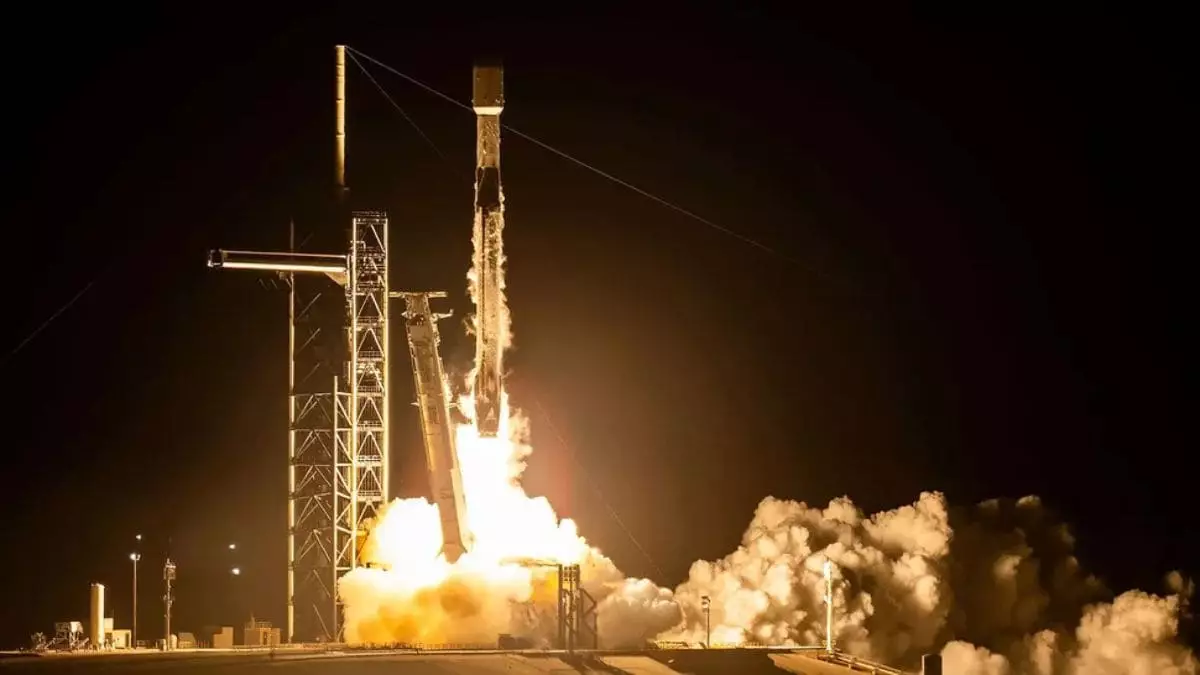The relentless pace at which SpaceX aims to operate by 2025 is nothing short of audacious. With a target of 170 orbital missions—nearly one every other day—the aerospace giant aspires to shatter its own record of 134 launches, a feat accomplished in only the previous year. Anne Mason, the director at SpaceX responsible for national security space launches, recently articulated this monumental ambition, highlighting the rapid normalization of such intense activity in the aerospace sector. While such a cadence could represent a pivotal moment in commercial spaceflight, it also begs the question: at what cost do we pursue this unprecedented launch frequency?
The Drive for Efficiency: A Double-Edged Sword
SpaceX attributes its soaring launch activities to operational efficiencies born from the reusability of the Falcon rockets, a strategy that has indeed reshaped how we view launch economics. Yet, while engineers proudly celebrate their ability to produce an expendable Falcon upper stage every two and a half days, this industrial sprint raises ethical dilemmas about sustainability and environmental impact. Are we sacrificing the nurture of our planet for the sake of technological advancement? Historically, an earthbound economy has been accountable for the damage imposed on our environment; this new space race could potentially replicate those same mistakes on a cosmic scale.
Furthermore, two-thirds of SpaceX’s 2024 launches will support the Starlink project—its network of nearly 7,500 low-earth orbit satellites aimed at global internet coverage. While undoubtedly innovative, this creates a scenario where the night sky risks becoming a defective tapestry, marred by satellites that block our celestial view. The expansion of the Starlink constellation not only sets precedent for space clutter but also calls into question how we govern space itself.
Vision vs. Reality: The Mirage of Progress
On a technical level, the company’s ambitions are commendable; however, the pressure to meet its astoundingly high targets raises doubts about oversight and safety. The frantic pace necessitated to meet this target could lead to rushed developments and potential oversights in safety protocols. In an industry where human life and scientific integrity hang in the balance, prioritizing rapid progress over meticulous caution poses an existential risk.
Moreover, with the rapidly increasing launch rate, the number of failed missions could lead to catastrophic consequences, disproportionate to the gains expected from such relentless space activity. Are we so caught up in the dream of interstellar colonization that we overlook the realities of what happens when things go wrong?
A Fragile Future of Space Exploration
In a world grappling with climate change and increasing inequality, our focus on rapid commercialization of space must be interrogated. While SpaceX undoubtedly leads the charge in democratizing access to the cosmos, we must question whether this rush toward a galactic future is indeed for the greater good or merely a testament to human ambition run amok. Instead of celebrating every mission as a harbinger of progress, perhaps we should temper our enthusiasm with a critical examination of the implications—both earthly and celestial—of an unchecked technological race.


Leave a Reply